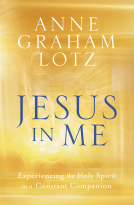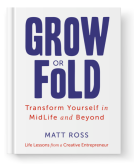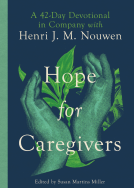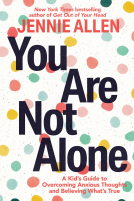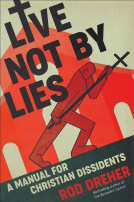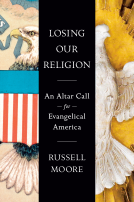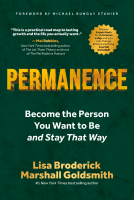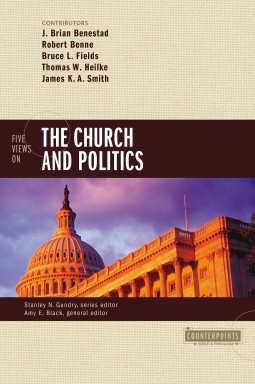
Five Views on the Church and Politics
by Amy E. Black, general editor
This title was previously available on NetGalley and is now archived.
Send NetGalley books directly to your Kindle or Kindle app
1
To read on a Kindle or Kindle app, please add kindle@netgalley.com as an approved email address to receive files in your Amazon account. Click here for step-by-step instructions.
2
Also find your Kindle email address within your Amazon account, and enter it here.
Pub Date Dec 15 2015 | Archive Date Aug 22 2017
Zondervan Academic | Zondervan
Description
Few topics can grab headlines and stir passions quite like politics, especially when the church is involved. Considering the attention that many Christian parachurch groups, churches, and individual believers give to politics—and of the varying and sometimes divergent political ideals and aims among them—Five Views on the Church and Politics provides a helpful breakdown of the possible Christian approaches. Readers will find themselves equipped to think more deeply about the relationship between church and state in a way that goes beyond mere policy debates and current campaigns.
General Editor Amy Black brings together five top-notch political theologians in the book, each representing one of the five key political traditions within Christianity:
Anabaptist (Separationist)—Thomas Heilke
Lutheran (Two Kingdom)—Robert Benne
Catholic (In Tension)—J. Brian Benestad
Reformed (Integrationist)—James K. A. Smith
Black Church (Prophetic)—Bruce Fields
Each author addresses his tradition's theological distinctives, the role of government, the place of individual Christian participation in government and politics, and how churches should (or should not) address political questions. Responses by each contributor to opposing views will highlight key areas of difference and disagreement.
Thorough and even-handed, Five Views on the Church and Politics will enable readers to consider the strengths and weaknesses of the most significant Christian views on political engagement and to draw their own, informed conclusions.
Available Editions
| EDITION | Paperback |
| ISBN | 9780310517924 |
| PRICE | $19.99 (USD) |
Average rating from 14 members
Featured Reviews
 Brent P, Reviewer
Brent P, Reviewer
Part of Zondervan’s Counterpoint series, where essays presenting a number of different perspectives are collected in a single volume, Five Views on the Church and Politics explores the interaction between the Church and the political world with respect to a wide range of Church traditions.
Represented in the book are the views from the Anabaptist (Isolationist), Lutheran (Two kingdom), Black Church (Prophetic), Reformed (Integrationist) and Catholic (In Tension) perspectives. Within these five traditions there is no single answer to how the Church should interact with politics and so each author opts to present a predominant view within their tradition.
Of particular note are the first three essays by Thomas Heilke, Robert Benne and Bruce Fields representing the Anabaptist, Lutheran and Black Church traditions. These are outstanding in their explanation of the history behind each tradition that has helped to shape their view of the political sphere and why each is particularly skeptical, to various degrees, of the Church’s interaction with political systems of governance.
After each essay, a response is presented from the other four perspectives. These are mostly focused on highlighting points of agreement and matters of disagreement and do a wonderful job of sharply identifying the boundaries between each tradition that can often seem unclear.
Finally the book is wrapped up with a look at the US political landscape and how the various traditions affiliate with the two main political parties. The information and statistics contained within will hardly be surprising, but it was interesting to learn that some traditions seem to drift more readily between parties.
Overall the book manages to achieve the difficult goal of clearly communicate what are often confusing distinctions between various Church traditions with regards to political interaction. Anyone looking for a respectful and academic examination of the topic will be rewarded by a thoughtful presentation of a wide spectrum of views that manages not to insult or champion any particular view over another.
 T M, Reviewer
T M, Reviewer
As with other books in this series, this is a work comparing different perspectives on the topic, in this case the Church and politics. You can find some views with which you agree, some you will adamantly oppose, and some which will likely question your own perspective. Give it a read.
 Earl M, Reviewer
Earl M, Reviewer
Five Views on the Church and Politics is an excellent introduction to how five denominations view the intersection of their church and politics. Each of the five give an overview of their theology and how it applies to the topic at hand, then the other four respond with the differences and similarities between the the two denominations. This format is ideal for an academic setting but is also accessible to a layperson who wants to learn about various theologies.
This reminds me of the Bedford Critical Editions within the literature discipline. Those books present a work, usually a novel, then present explanations of various schools of thought, each followed by a critical essay demonstrating how that school of thought might approach the novel in question. Both the Bedford series and this Counterpoints series provide explanation as well as compare-and-contrast opportunities for learners to better distinguish differences.
While intended, I believe, for an academic audience, this would certainly be a wonderful addition to the library of anyone who likes to better understand the views of other people. The disagreements within the book are presented positively and not in a particularly confrontational manner and should be read as educational and not argumentative. The argument can only really begin after one has honestly tried to understand another viewpoint, so read each with a mind toward understanding, not responding, then revisit with an eye toward responding. This will broaden your understanding of both these denominations as well as your own should it not be included here.
I found no entry with which I was in complete agreement yet gained much from understanding these views even if I changed very little of my personal view.
Reviewed from a copy made available by the publisher via NetGalley.
Readers who liked this book also liked:
Harold Earls, IV; Rachel Earls
Biographies & Memoirs, Parenting, Families, Relationships
Lisa Broderick and Marshall Goldsmith
Business, Leadership, Finance, Nonfiction (Adult), Self-Help

